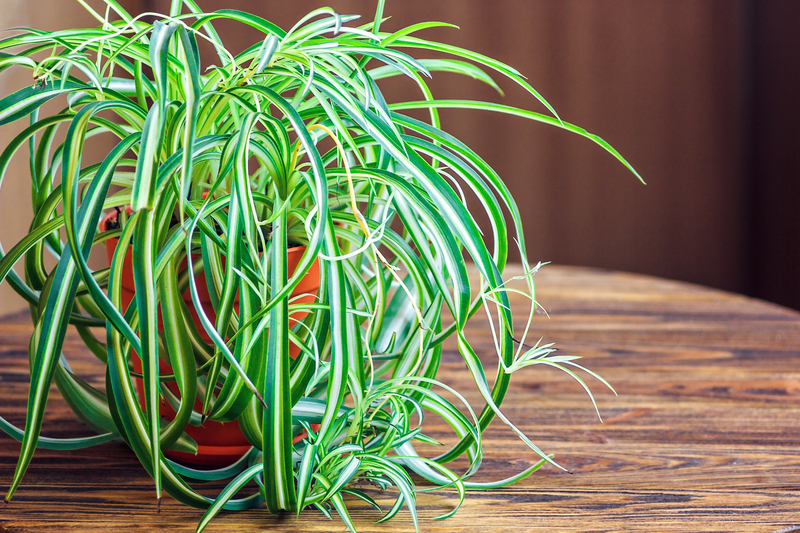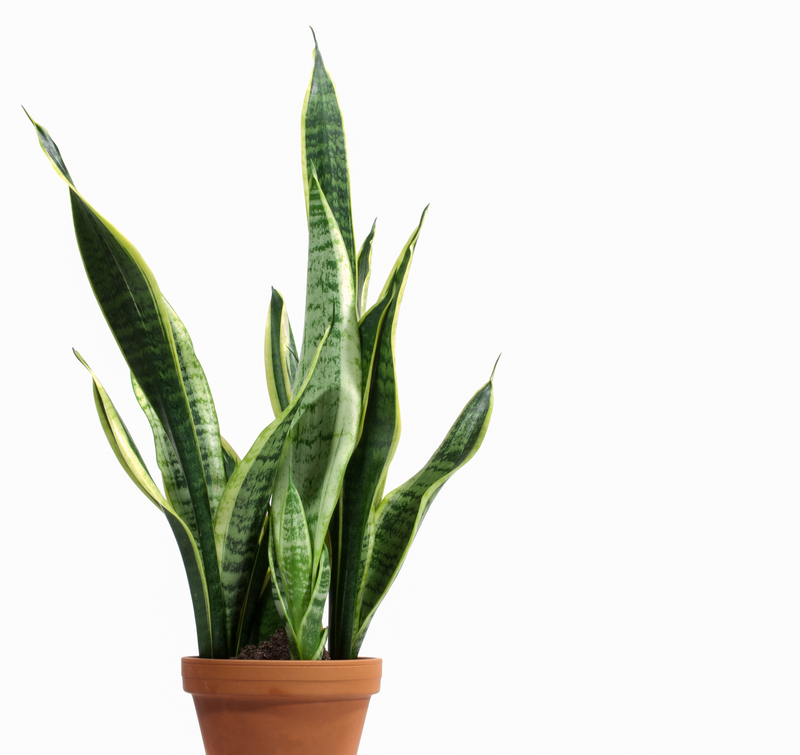Fostering Soil Vitality through Composting Waste
Posted on 24/06/2025
Fostering Soil Vitality through Composting Waste: Unlocking the Power of Nature
Maintaining soil vitality is crucial for successful agriculture, home gardening, and environmental stewardship. In a world facing increasing soil degradation, nutrient loss, and landfill waste, composting waste stands out as an eco-friendly solution. This comprehensive guide will delve into the science, methods, benefits, and advanced techniques of fostering soil vitality through composting waste for greener gardens, healthier crops, and a cleaner environment.
Why Soil Vitality Matters
Healthy soil is the living foundation of productive ecosystems. When soil is teeming with microbes, organic matter, and minerals, plants can access essential nutrients, resist disease, and thrive. However, factors such as over-farming, chemical usage, and improper waste management have diminished soil quality globally. Revitalizing soil not only boosts crop yield but also fosters climate resilience and biodiversity.
- Nutrition:** Fertile soils supply plants with a balanced diet of macro and micronutrients.
- Structure:** Good soil has loose, crumbly texture, promoting water infiltration and root growth.
- Microbial Life:** Rich organic matter fuels beneficial bacteria, fungi, and earthworms that break down nutrients and suppress pathogens.
- Sustainability:** Vital soils reduce dependency on chemical fertilizers and promote long-term agricultural productivity.
The Link between Composting and Soil Health
Composting organic waste is one of the most effective ways to improve soil structure, fertility, and biological activity. Turning kitchen scraps, yard trimmings, and other biodegradable materials into compost not only keeps waste out of landfills but also returns vital nutrients to the earth. Consistent composting practices can dramatically enhance a soil's vitality, making it the cornerstone of sustainable gardening and agriculture.

Understanding Composting: Nature's Recycling Process
Composting is a natural process in which microorganisms, insects, and earthworms decompose organic materials into humus--a nutrient-rich, earthy substance that revitalizes depleted soil. The transformation converts waste into a black gold that supports plant vigor and ecosystem health.
Key Components of the Composting Process
- Organic inputs: Fruit peels, vegetable trimmings, coffee grounds, leaves, grass clippings, and even shredded paper.
- Decomposers: Bacteria, fungi, worms, and small arthropods break down the organic matter.
- Moisture: Adequate water ensures the compost heap is damp but not soggy, supporting microbial life.
- Oxygen: Aeration through turning or ventilation encourages aerobic decomposition and minimizes foul odors.
- Temperature: Active compost piles generate heat, fostering fast breakdown of materials and destroying pathogens.
Top Benefits of Composting for Soil Vitality
Composting waste offers unparalleled advantages for soil health and the environment. Here's how regular composting enriches the earth:
- Enhances Nutrient Content: Compost returns nitrogen, phosphorus, potassium, and trace minerals to your soil--fueling robust plant growth.
- Improves Soil Structure: Organic matter in compost aids in creating a crumbly, well-aerated substrate for root development.
- Increases Water Retention: Compost boosts the soil's ability to retain moisture, helping gardens thrive even during dry spells.
- Encourages Microbial Activity: The addition of compost supports beneficial microbial populations that cycle nutrients and suppress disease.
- Reduces Erosion: Soils rich in organic matter are less prone to erosion from wind and water.
- Lowers Dependence on Chemicals: With nutrient-rich compost, the need for synthetic fertilizers declines, fostering safer and more sustainable growing.
- Reduces Landfill Waste: By diverting organic matter from landfills, composting mitigates methane emissions and reduces landfill usage.
Environmental Impact of Composting
In addition to fostering vibrant soils, composting waste plays a pivotal role in combating climate change. Decomposing organic matter in landfills produces methane, a potent greenhouse gas. Composting converts the same waste into a stable product that sequesters carbon and mitigates greenhouse gas emissions.
How to Start Composting: Step-by-Step Guide
Regardless of your space or experience, you can successfully foster soil vitality by composting household and garden waste. Here's how to get started:
1. Select Your Composting Method
- Backyard Piles or Bins: Ideal for those with gardens, these allow for the composting of large volumes of yard and kitchen waste.
- Tumblers: Closed containers that rotate, speeding up decomposition and deterring pests.
- Vermicomposting: Utilizes worms (typically Eisenia fetida) to break down food scraps, perfect for small spaces.
- Bokashi: A fermentation process that pre-treats kitchen waste for faster breakdown in outdoor composters.
- Community Composting: Shared neighborhood efforts for those without personal garden space.
2. Build Your Compost Pile: The Brown-Green Balance
For effective decomposition, a balanced mix of browns (carbon-rich materials) and greens (nitrogen-rich materials) is vital.
- Browns: Dead leaves, cardboard, straw, woody material, shredded paper.
- Greens: Vegetable scraps, fruit peels, coffee grounds, fresh grass clippings.
Aim for a ratio of roughly 2-3 parts browns to 1 part greens. Too much nitrogen causes odors, while excess carbon slows decomposition.
3. Maintain Your Compost
- Aerate Regularly: Turn the pile every 1-2 weeks to provide oxygen and speed up decomposition.
- Monitor Moisture: Keep your compost as damp as a wrung-out sponge.
- Chop Inputs: Smaller pieces break down faster--shred leaves and chop stems if possible.
- Avoid Pests: Cover food scraps with browns and do not add meat, dairy, or fats.
4. Harvest and Apply Compost
Within 3-6 months (faster in tumblers or hot piles), your compost should be dark, crumbly, and earthy-smelling. Sift out any large, undecomposed bits and spread your finished compost:
- Mulch Garden Beds: A 1-2 inch layer suppresses weeds, retains moisture, and boosts fertility.
- Top-Dress Lawns: Broadcast a thin layer to invigorate grass and build soil.
- Potting Mix: Blend compost with soil for strong, healthy potted plants.
Advanced Tips for Accelerating Compost and Enhancing Soil Quality
Heating Up Your Compost
To foster rapid soil enrichment, create a "hot" compost pile by:
- Building a minimum pile size of 3' x 3' x 3' for heat retention.
- Layering browns and greens, and monitoring the core temperature (130-150?F is optimal).
- Turning more frequently to oxygenate and distribute heat evenly.
Inoculating Your Compost
Speed up decomposition and diversify beneficial microbes by adding finished compost, leaf mold, or garden soil as inoculants to fresh piles.
Compost Tea for Soil Vitality
Steeping finished compost in water produces a nutrient-rich "tea" that can be sprayed as a foliar feed or drench around roots for instant soil vitality and disease resistance.
Sustainable Innovations in Composting Waste
As more individuals and communities embrace soil regeneration, innovative methods for composting waste are emerging:
- Smart Composters: Automated bins that regulate moisture, oxygen, and temperature to expedite composting with minimal effort.
- Community Hubs: City and neighborhood initiatives for compost drop-off and bulk soil amendment distribution.
- Biochar: Charring biomass increases soil carbon storage and microbial habitat--mix with compost for added benefit.
- Incorporating Spent Mushrooms or Brewery Byproducts: Utilizing waste streams from other industries can further boost compost quality.
Composting Waste in Urban Spaces
Urban dwellers can foster soil vitality by composting even in limited spaces or apartments:
Vermicomposting Indoors
Worm bins fit easily under sinks or in closets. With the right moisture and bedding, red wigglers can transform kitchen scraps into worm castings--a highly concentrated soil amendment rich in enzymes and nutrients.
Community Compost Programs
Many cities now offer curbside organic waste collection, community garden compost bins, and compost exchange markets, making it easy for anyone to contribute to soil regeneration even without a backyard.
Common Problems and Solutions in Home Composting
- Odorous Compost: Often caused by too much green material or lack of aeration. Add more browns and turn the pile.
- Slow Decomposition: Pile may lack moisture, nitrogen, or is too cold. Try moistening, adding more greens, or increasing pile size.
- Pests (rats, raccoons): Avoid adding meat, dairy, or oily foods, and cover all fresh waste with carbon-rich materials.
- Compacted Pile: Turn and fluff regularly to reintroduce air for aerobic decomposition.

Frequently Asked Questions on Composting for Soil Vitality
Can I compost weeds or invasive plants?
Only if your pile gets hot enough (over 140?F) to kill seeds and roots. Otherwise, avoid adding persistent weeds.
Is it OK to compost citrus or onion peels?
Small amounts are fine, but too much can acidify or slow down composting. Balance with other materials.
How does finished compost differ from fertilizer?
Compost is a holistic soil amendment providing organic matter and supporting soil life. Fertilizers offer concentrated nutrients but do not improve soil structure or biology.
Conclusion: Composting Waste is Key to Soil Regeneration
As the world seeks sustainable solutions for agriculture, landscaping, and waste reduction, fostering soil vitality through composting waste must be a top priority. Transforming organic waste into rich compost not only nourishes plants and boosts yields but also closes the loop of natural nutrient cycling, healing the earth from the ground up.
By following simple composting practices--whether in the backyard, kitchen, or community center--everyone can contribute to resilient, productive, and life-filled soils. Start composting today and watch your soil, garden, and planet thrive.



